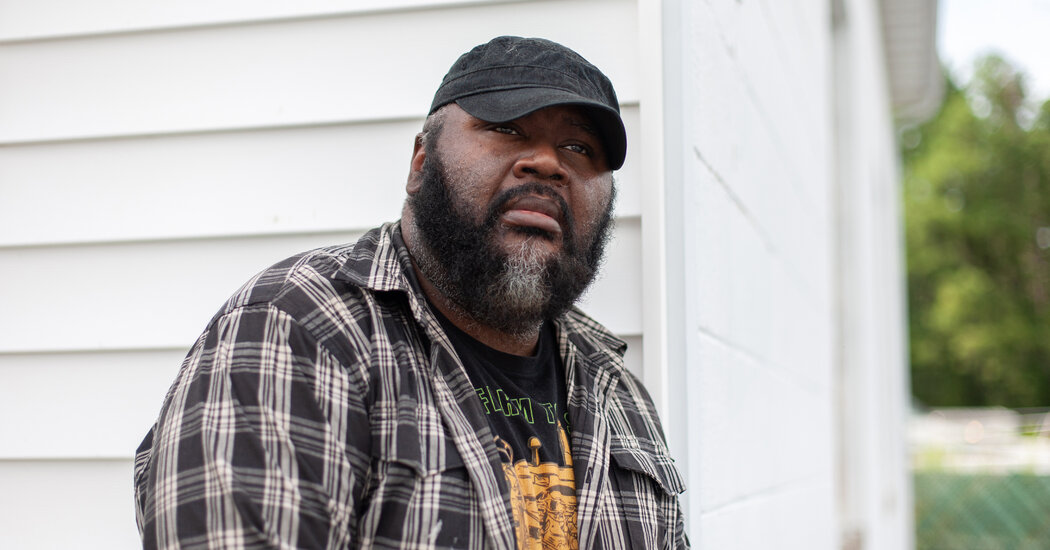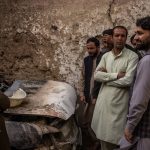
The first thing he bought with book money, he tells me, starting the car and laughing, was an electric recliner. “Twenty-year-old Shawn would have been so ashamed of me buying a $600 recliner,” he says. “He would have been like, ‘Let’s go to Vegas and blow it all on a weekend.’”
The chair has a heated seat and other extras. Cosby writes in it in the evenings, sitting next to Kimberly in their living room while she watches TV. He’s got a lap desk, and he types while listening to music, often Stevie Ray Vaughan, on Spotify.
Cosby grew up in nearby Mathews County. His father worked on a scallop boat in the Chesapeake Bay. His mother, who was partially disabled, mostly raised him and his brother, alone in a trailer, getting by with the help of food stamps. Other family members lived nearby.
Cosby pulls in behind a defunct bar along Route 14. His family’s faded trailer still sits out back, about 50 yards behind it. When Cosby was a kid, the bar was called Club 14, and it was the most popular Black bar in the county.
He spent his childhood trying to sneak into it, and he succeeded often enough. He saw his first bar fight when he was 11. He grew to know, and understand, the kind of florid characters who would later populate his fiction. He calls his childhood “a pastoral, almost Huck Finn type.”
Racism in this part of Virginia was pervasive. His school was named Jackson Lee Elementary, after both Stonewall Jackson and Robert E. Lee. Cosby recalls being made to write essays about how the Civil War was a war of Northern aggression. A Confederate statue stood outside the county courthouse.
Cosby was, he says, saved by reading. There were books in his house because his mom liked biographies, his grandmother read “trashy true crime stories,” an aunt read Stephen King and Clive Barker, and an uncle gave him John D. MacDonald’s Travis McGee novels.





